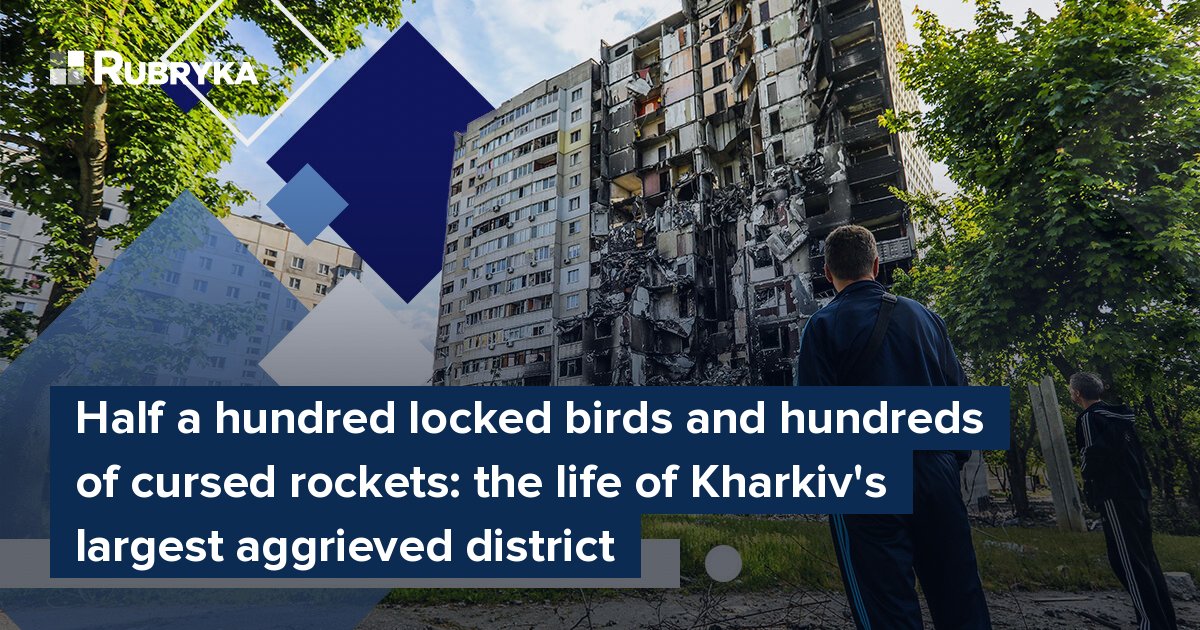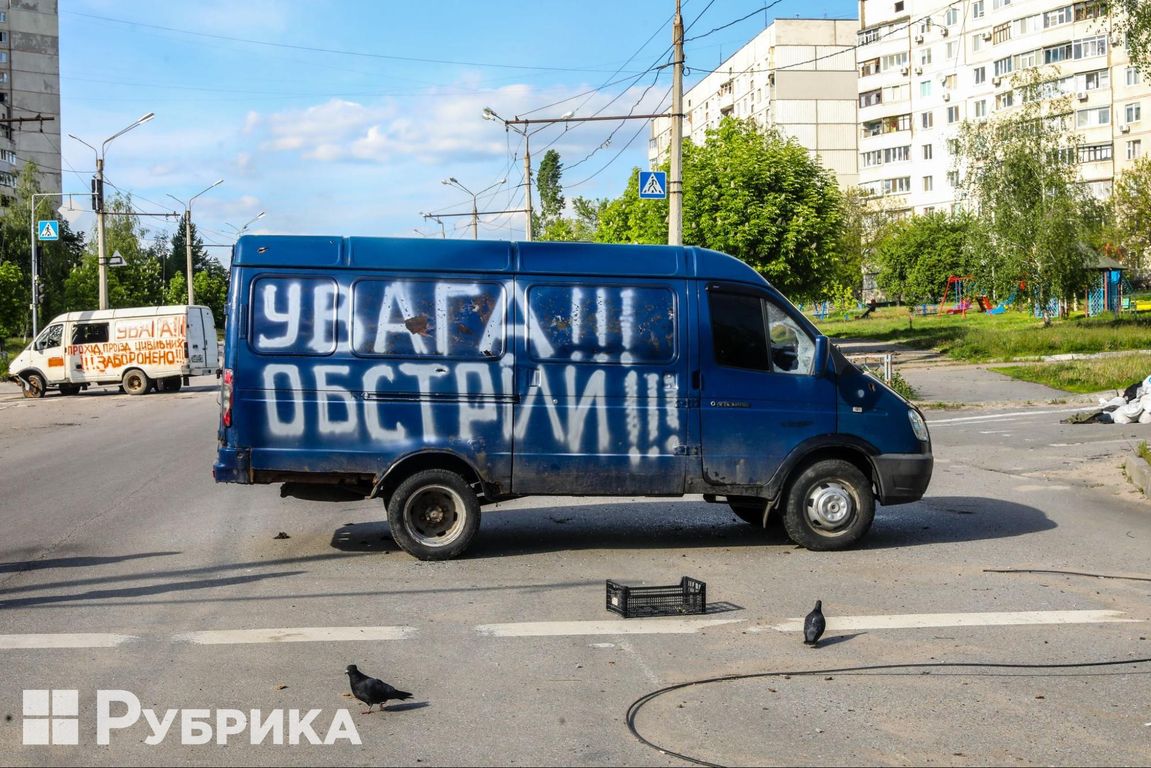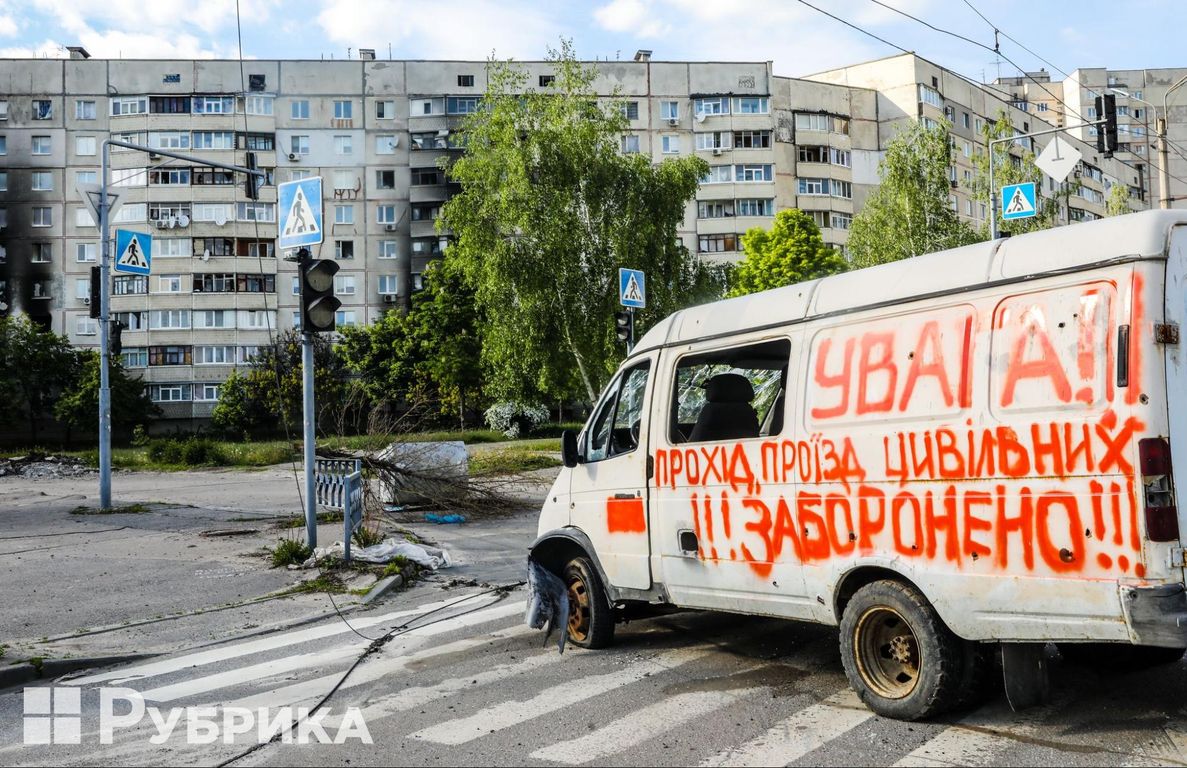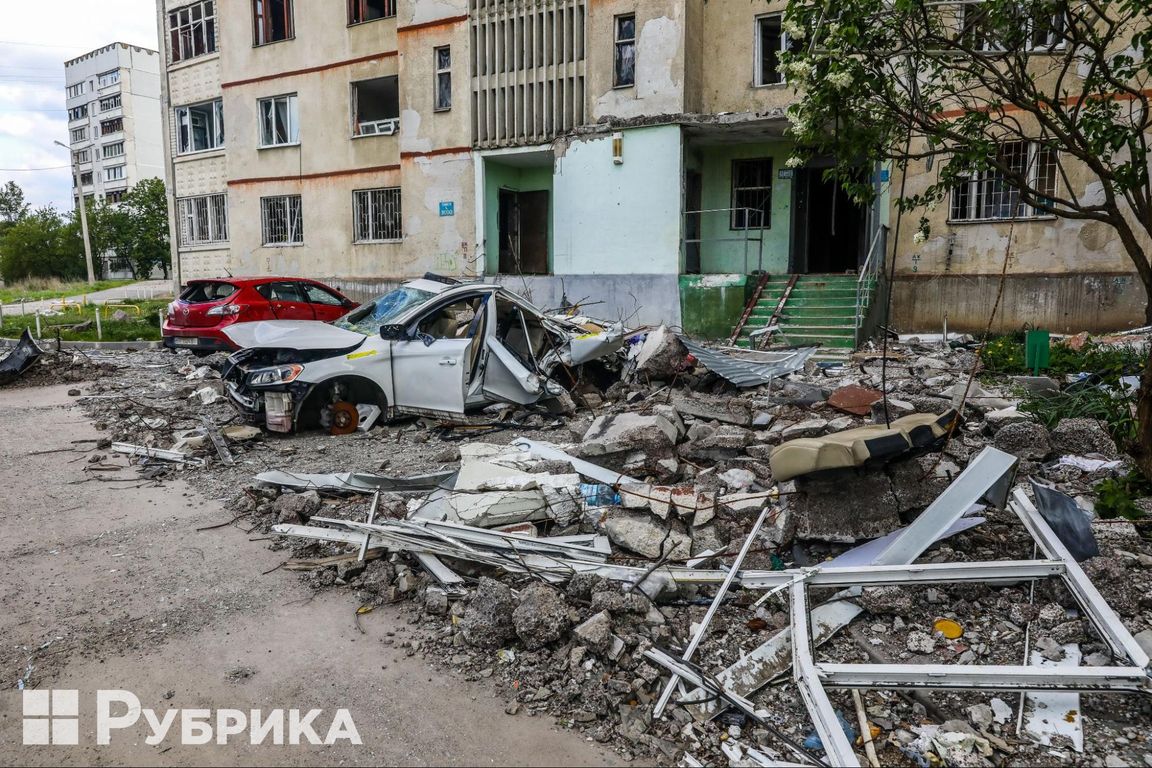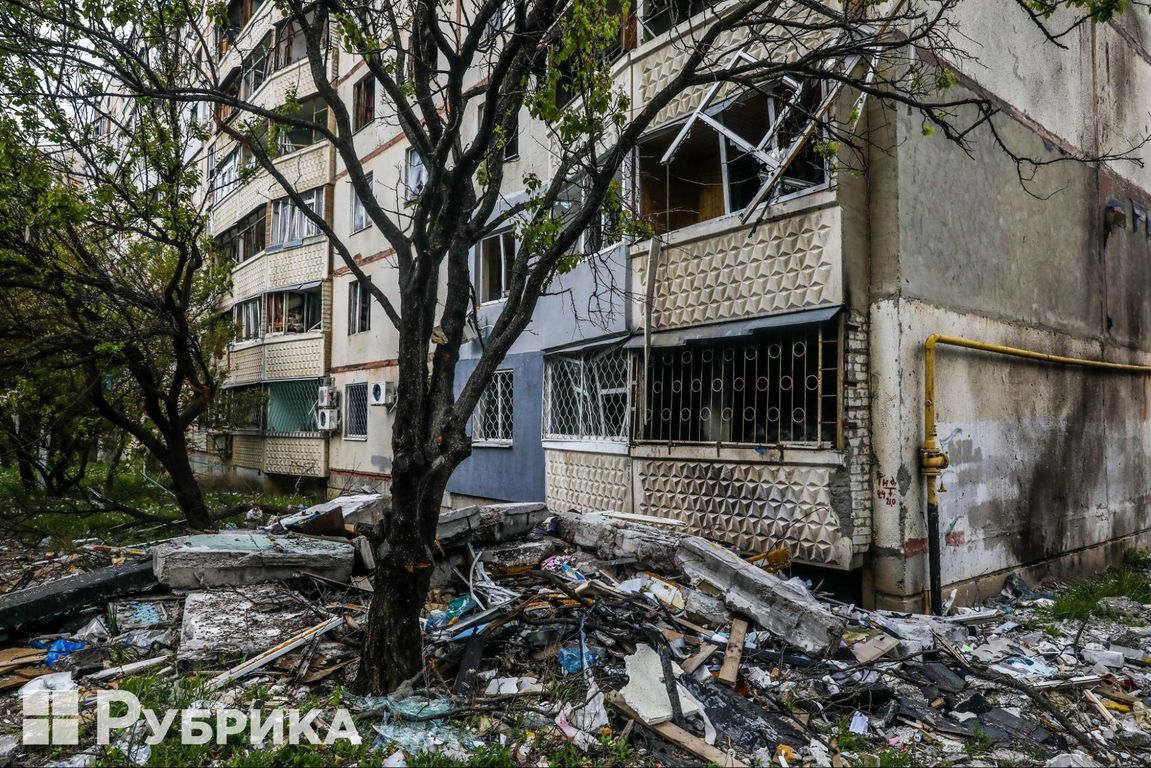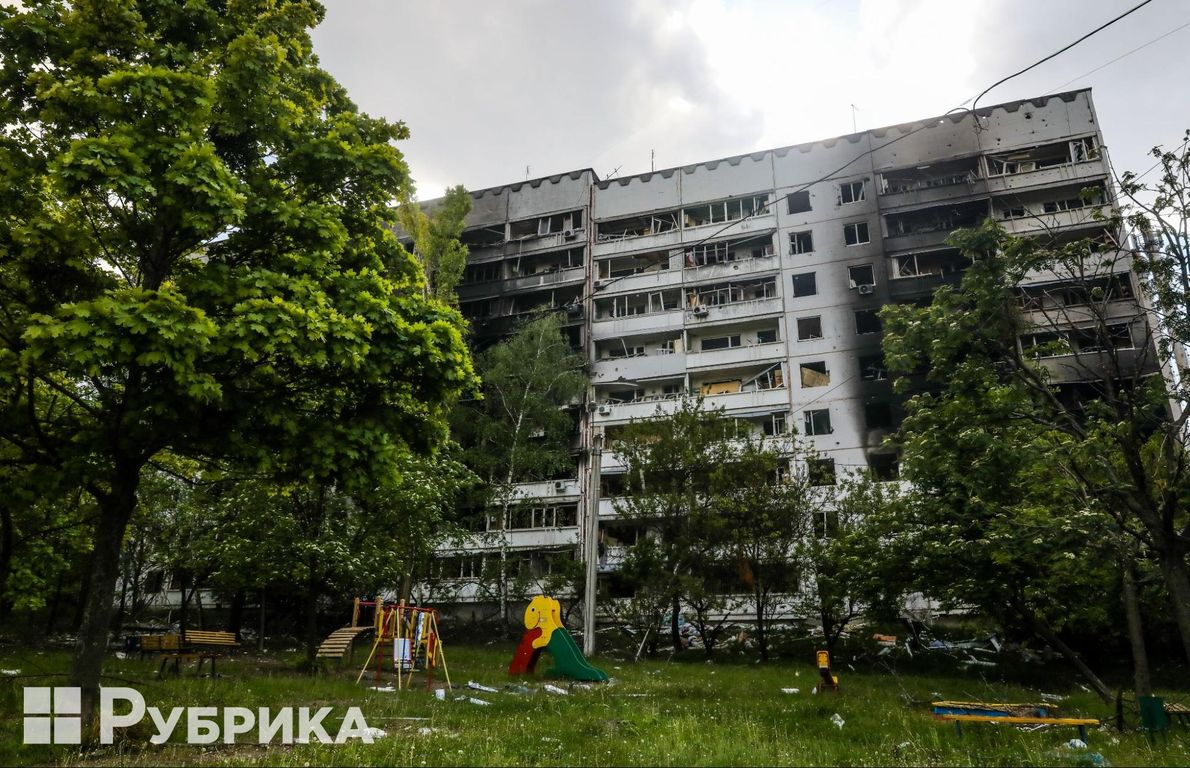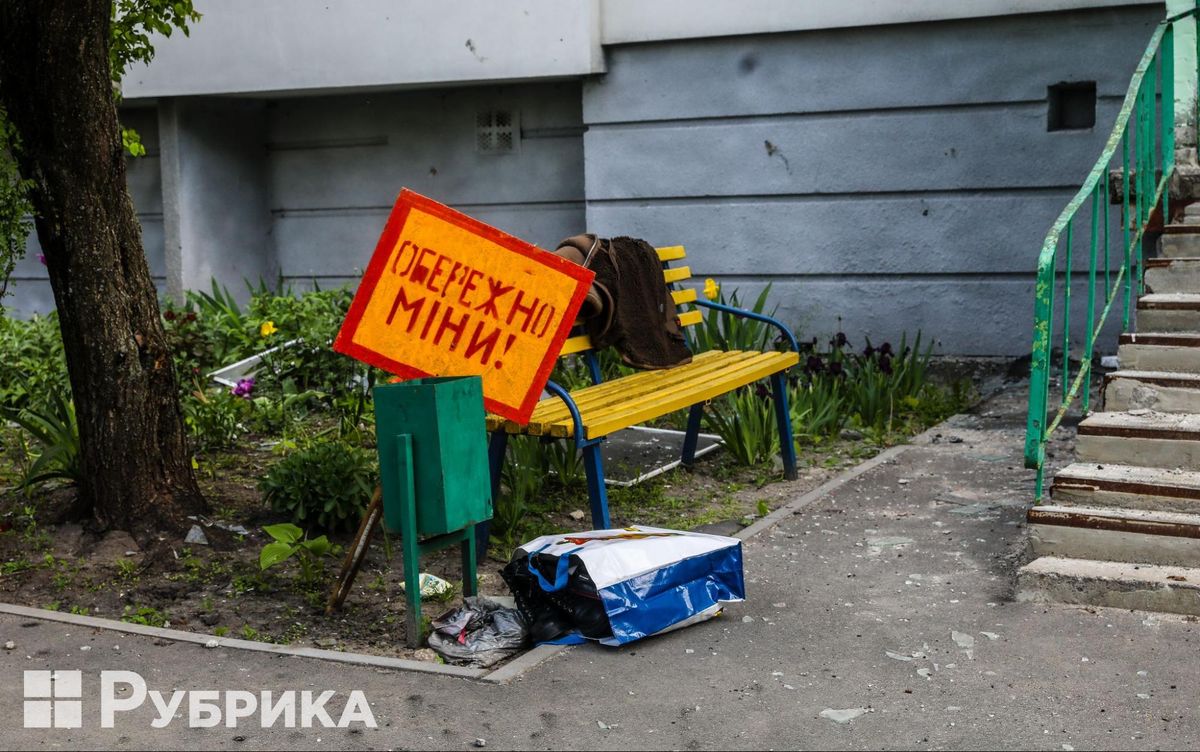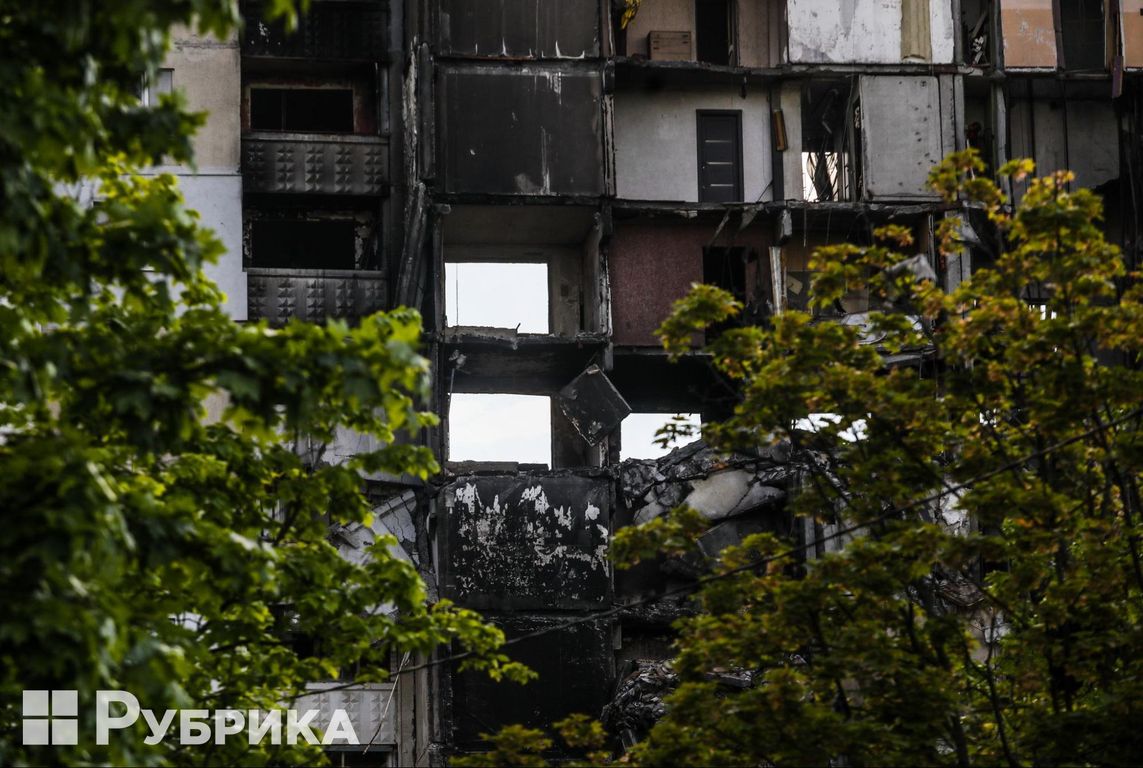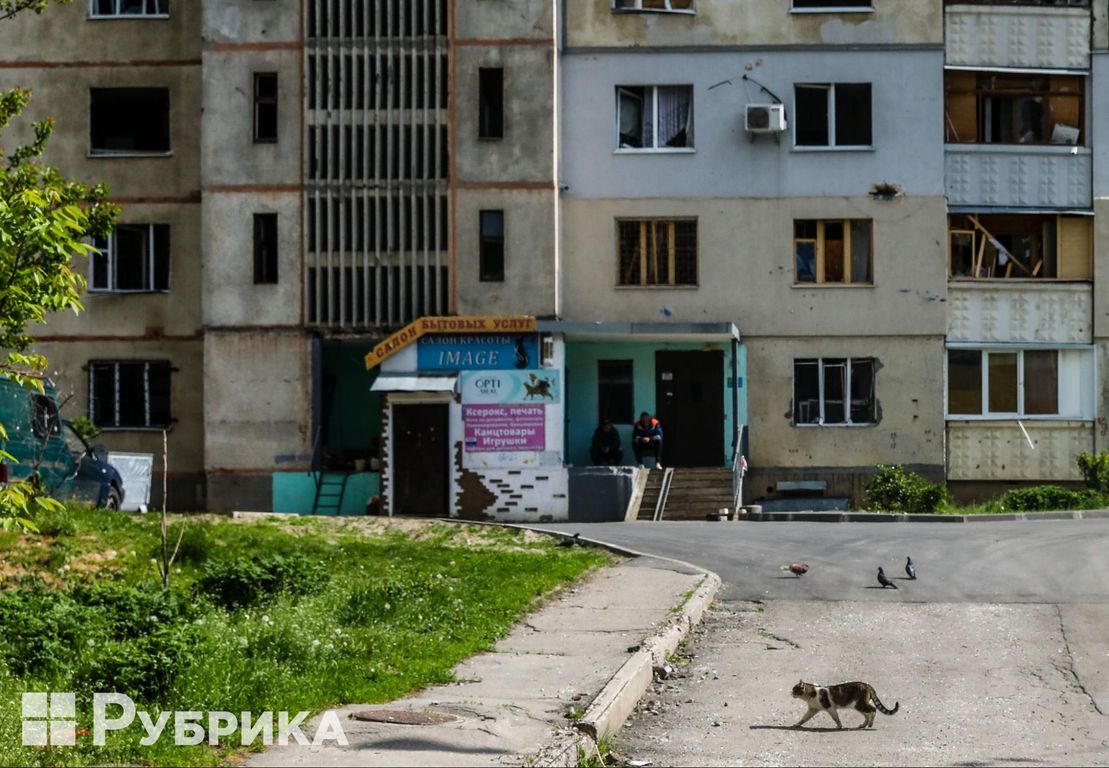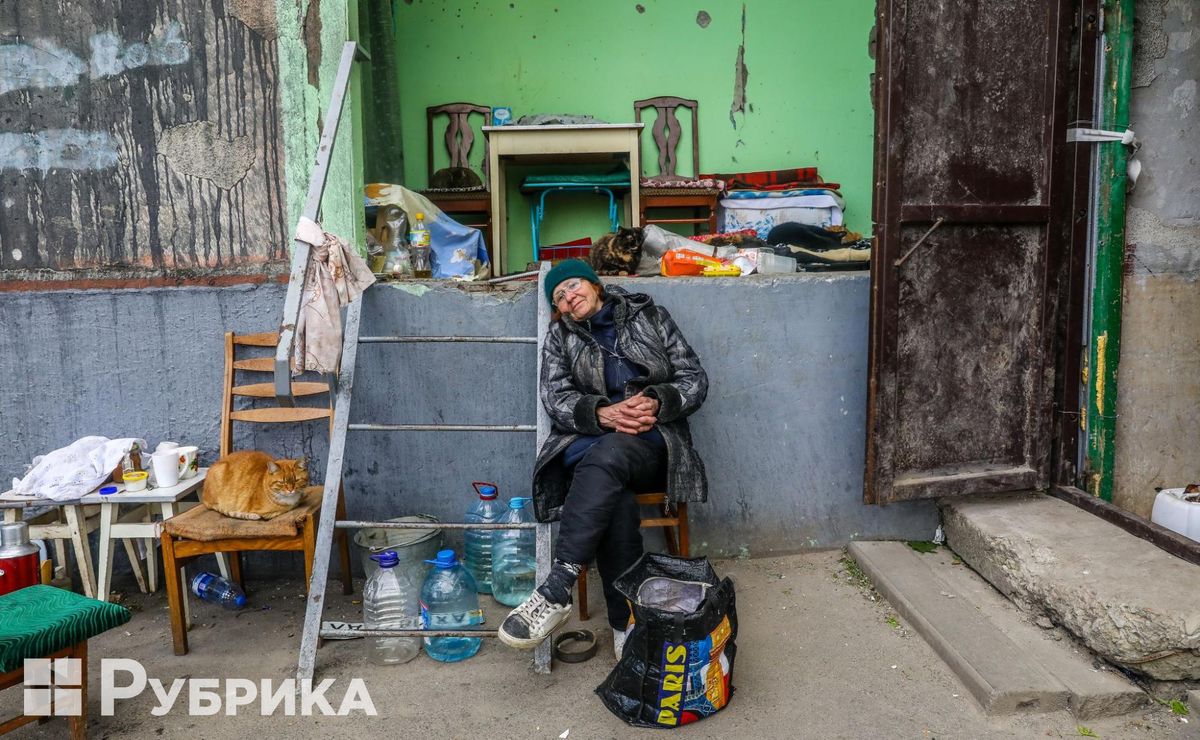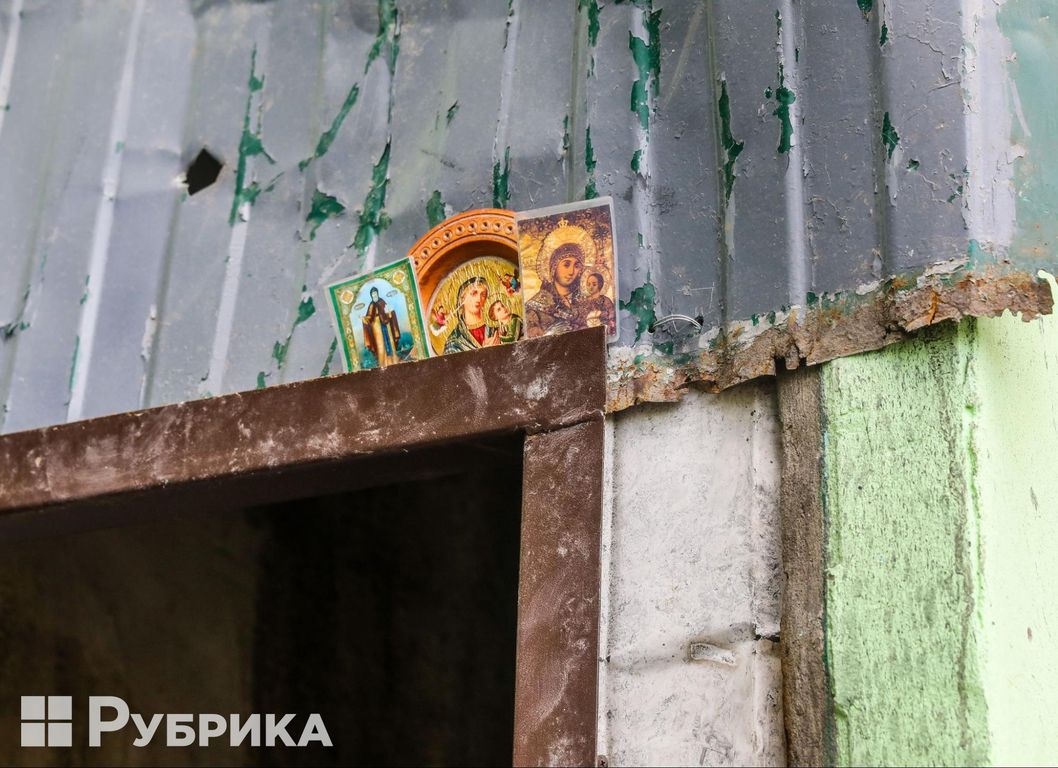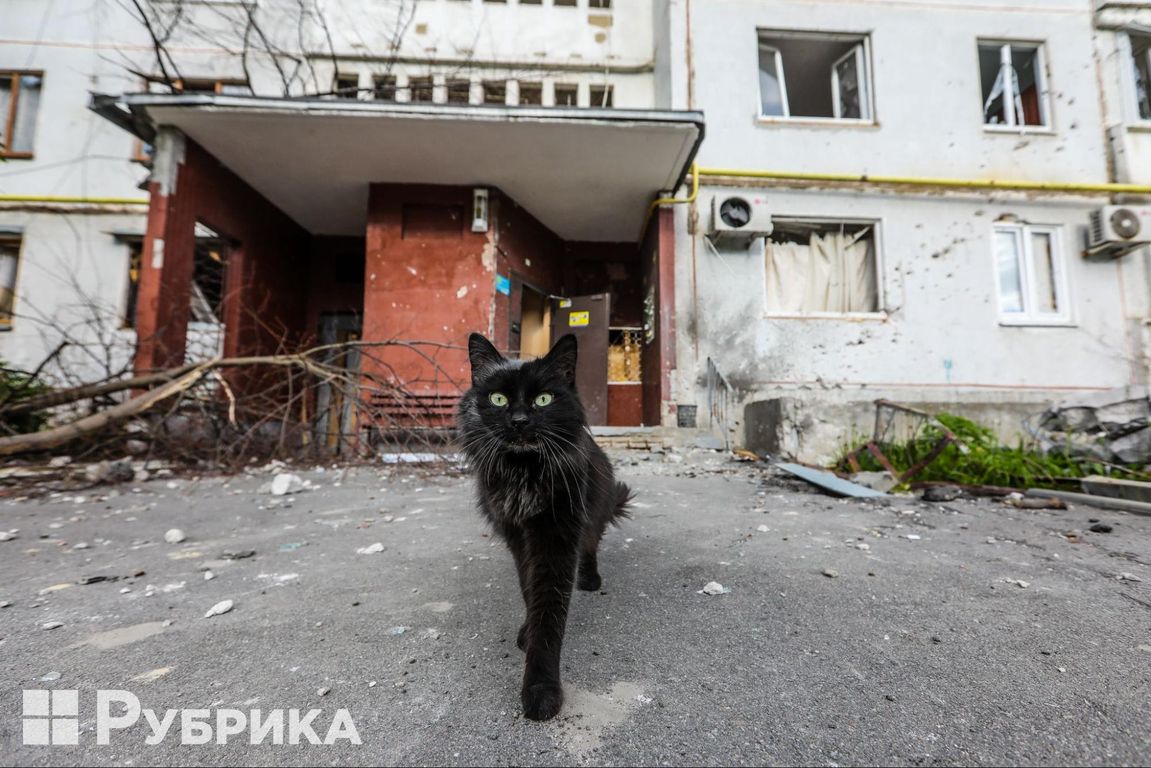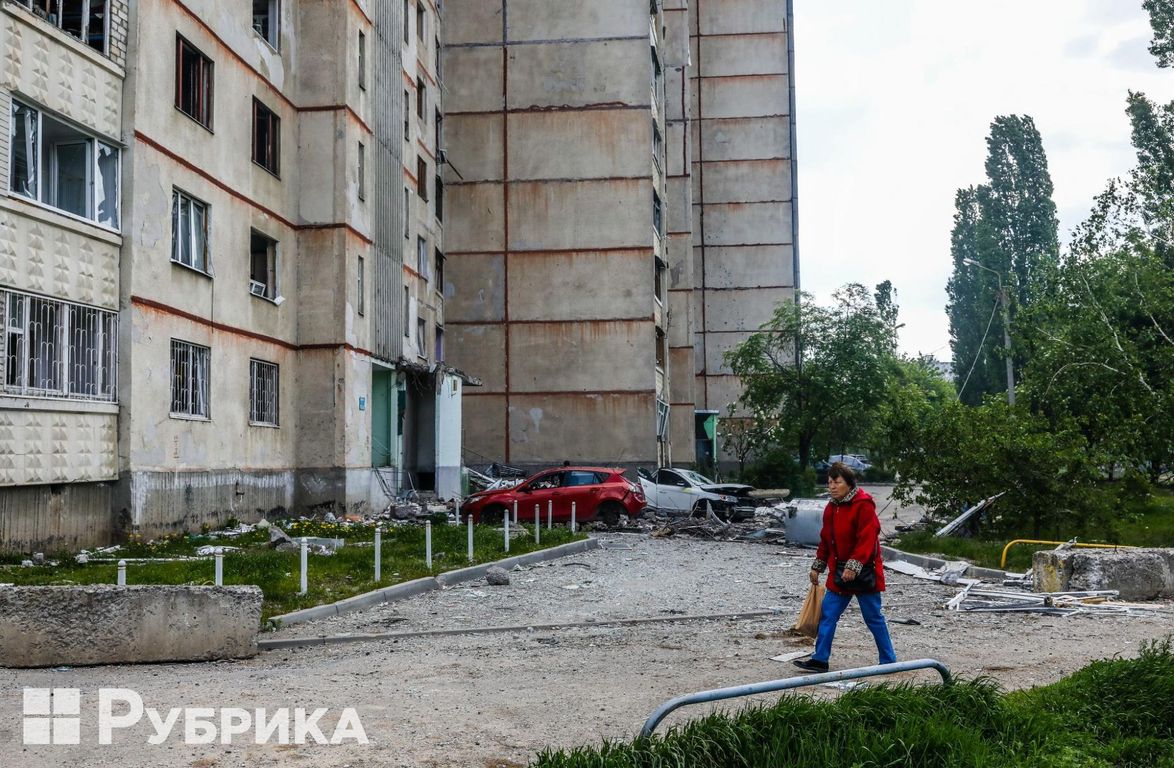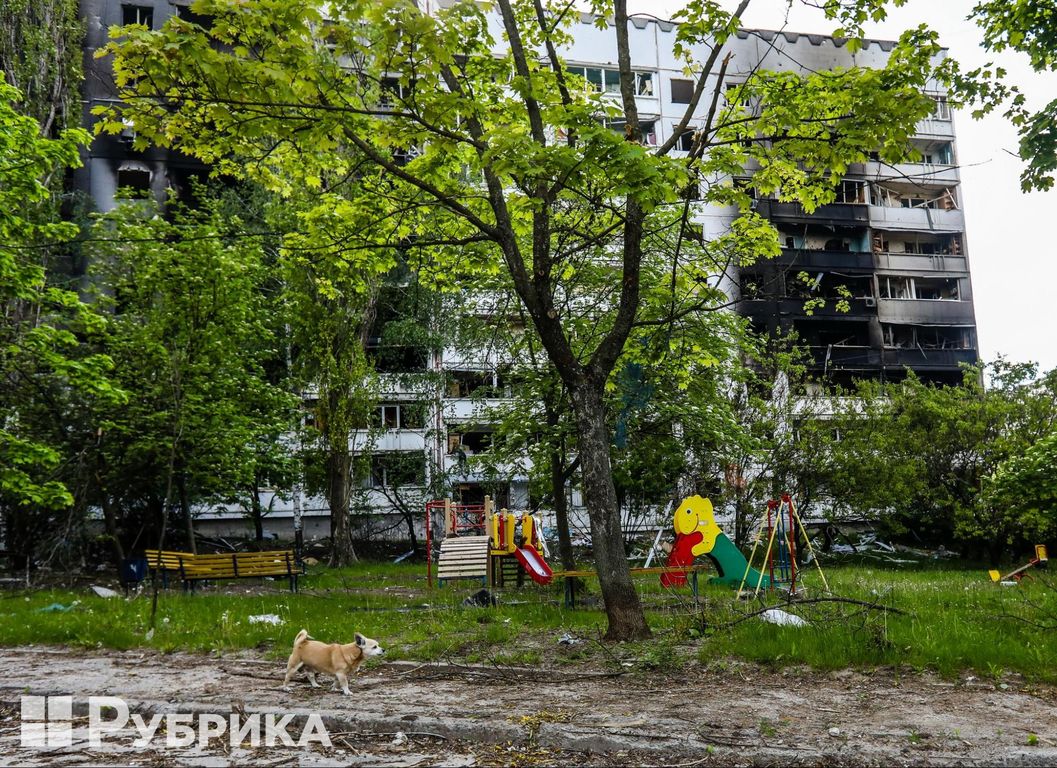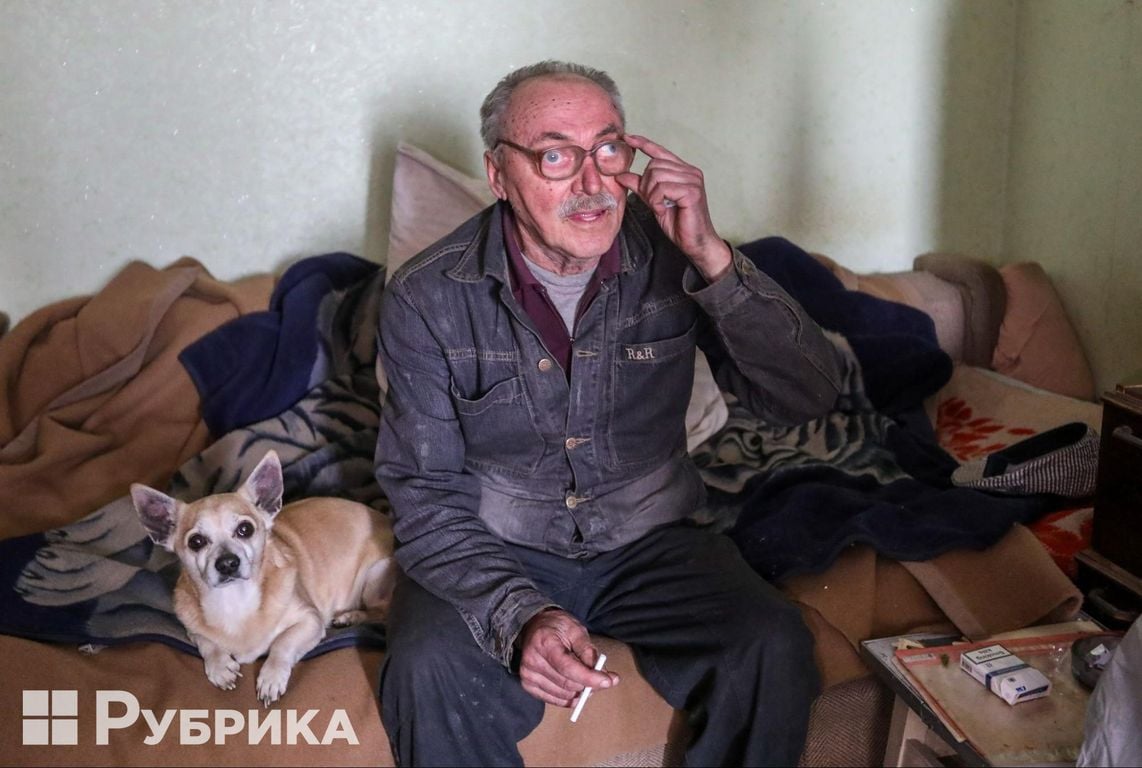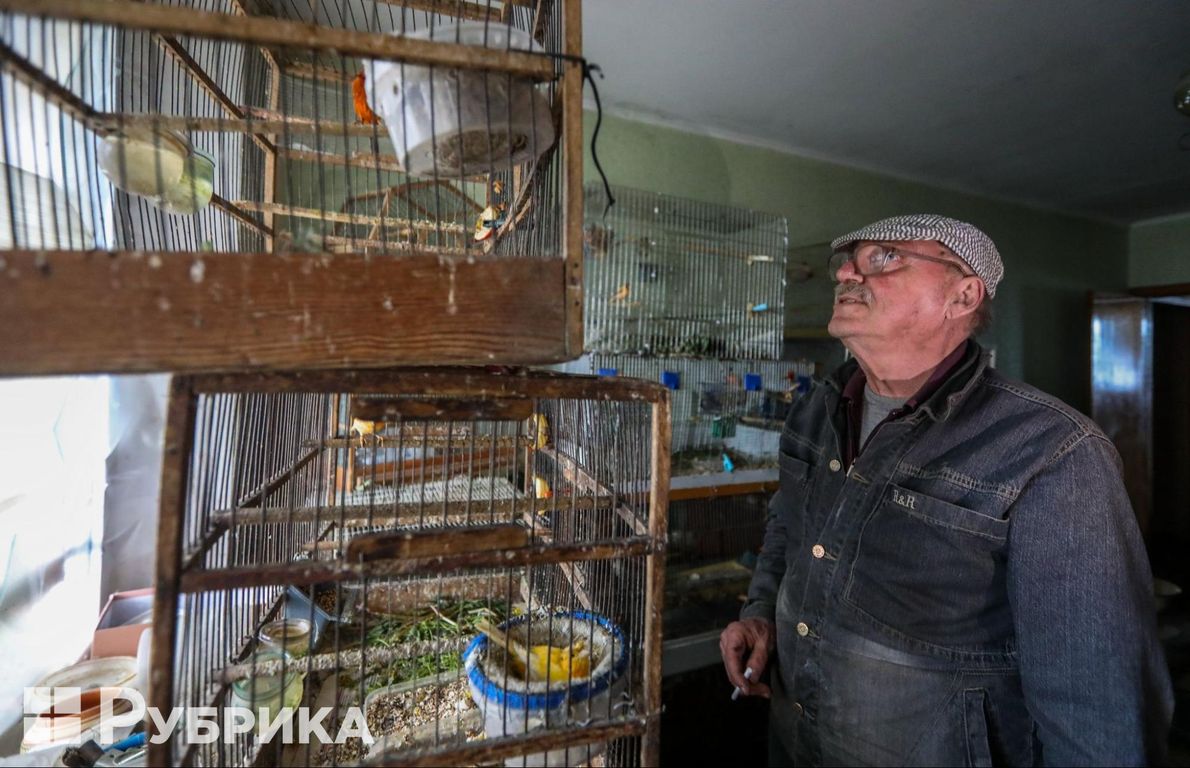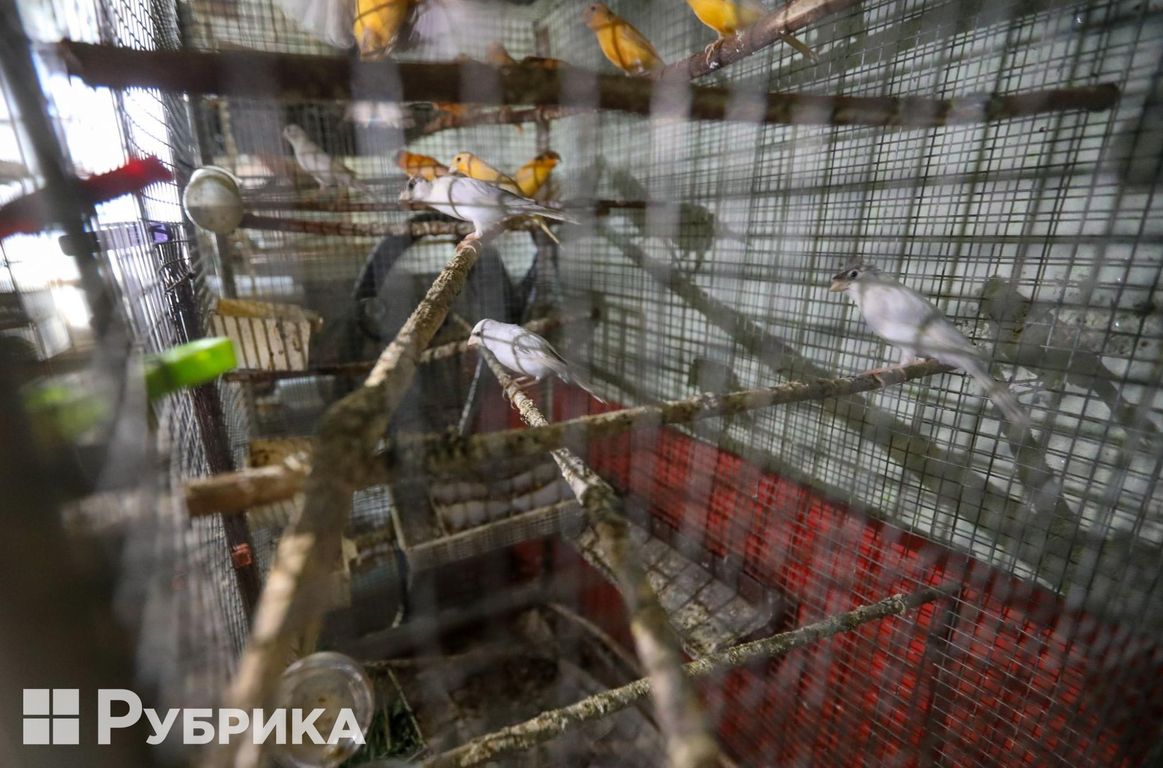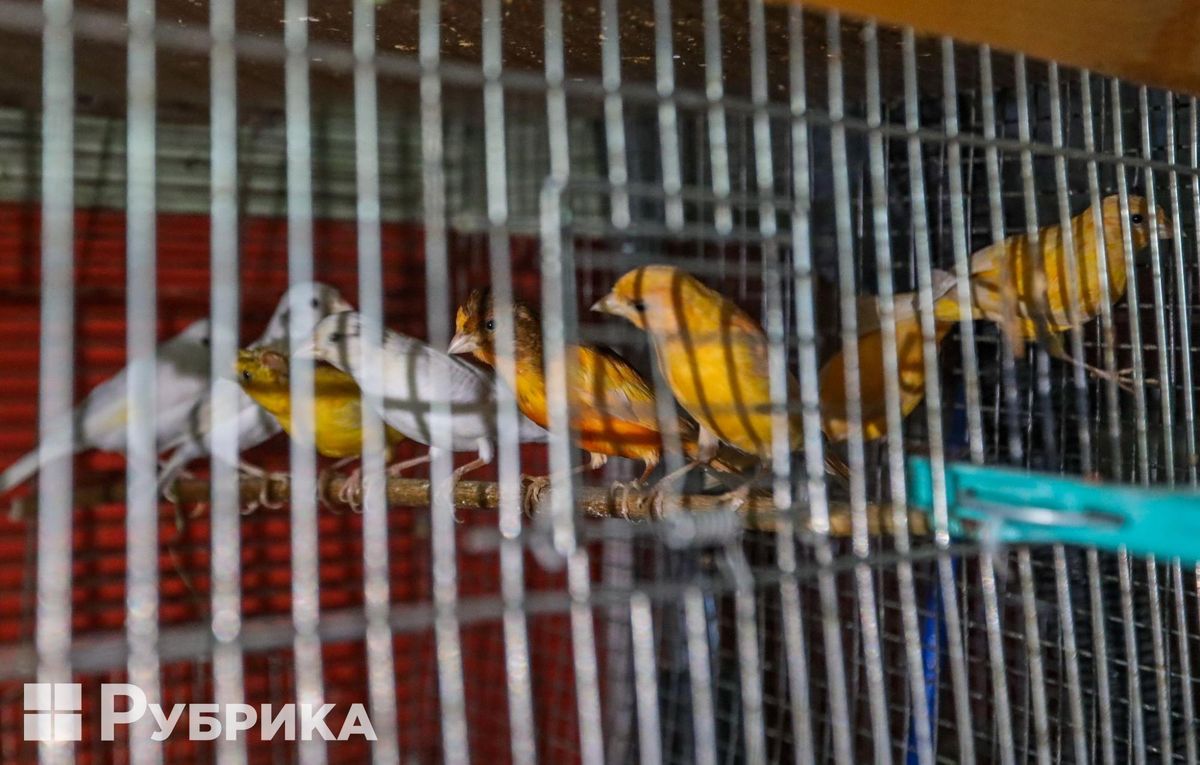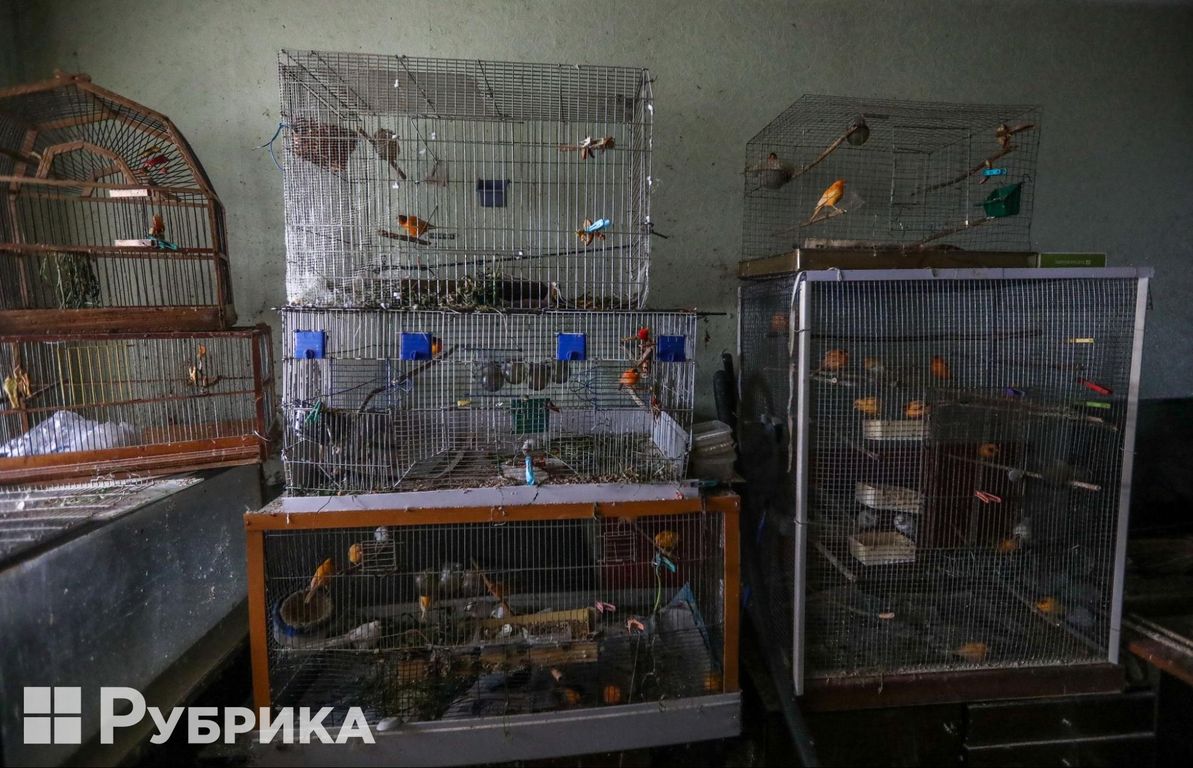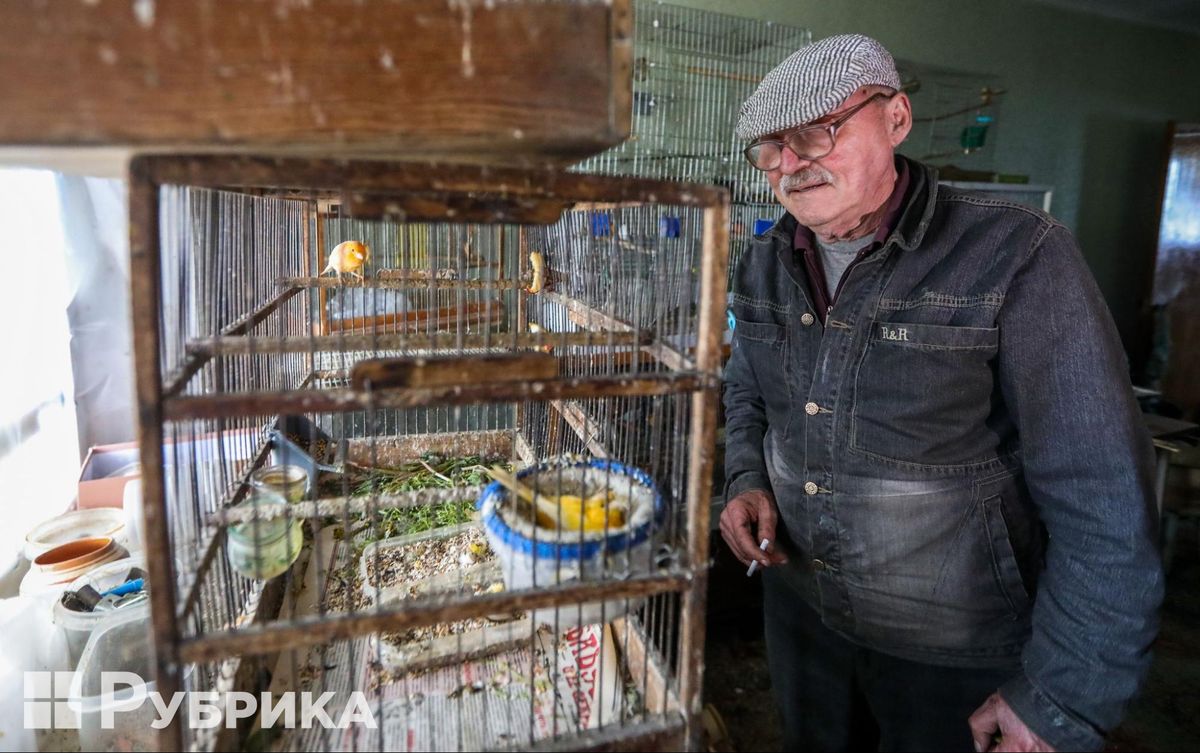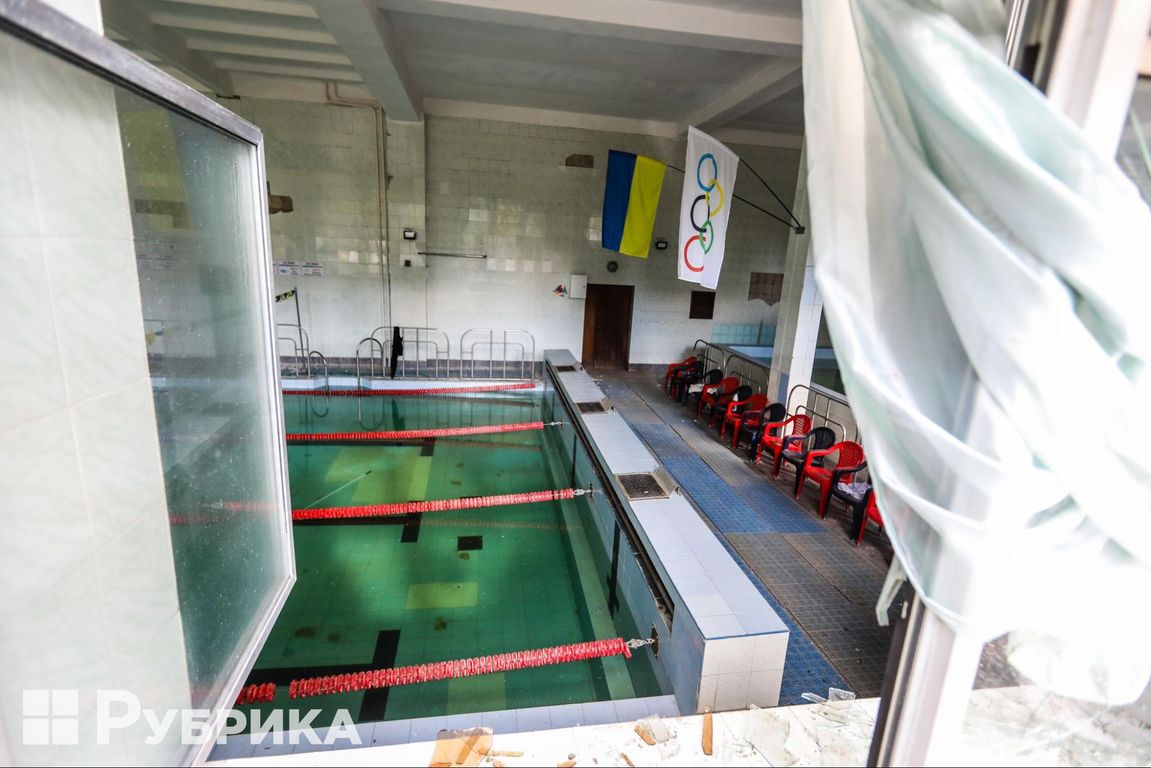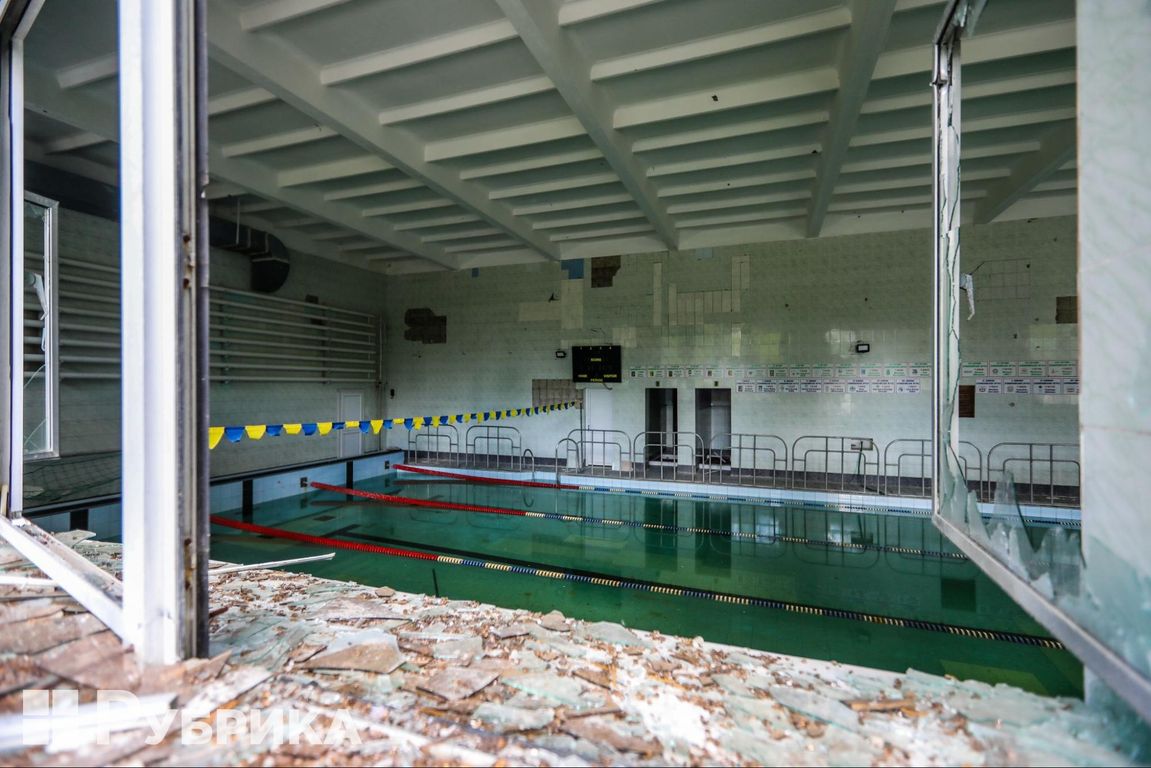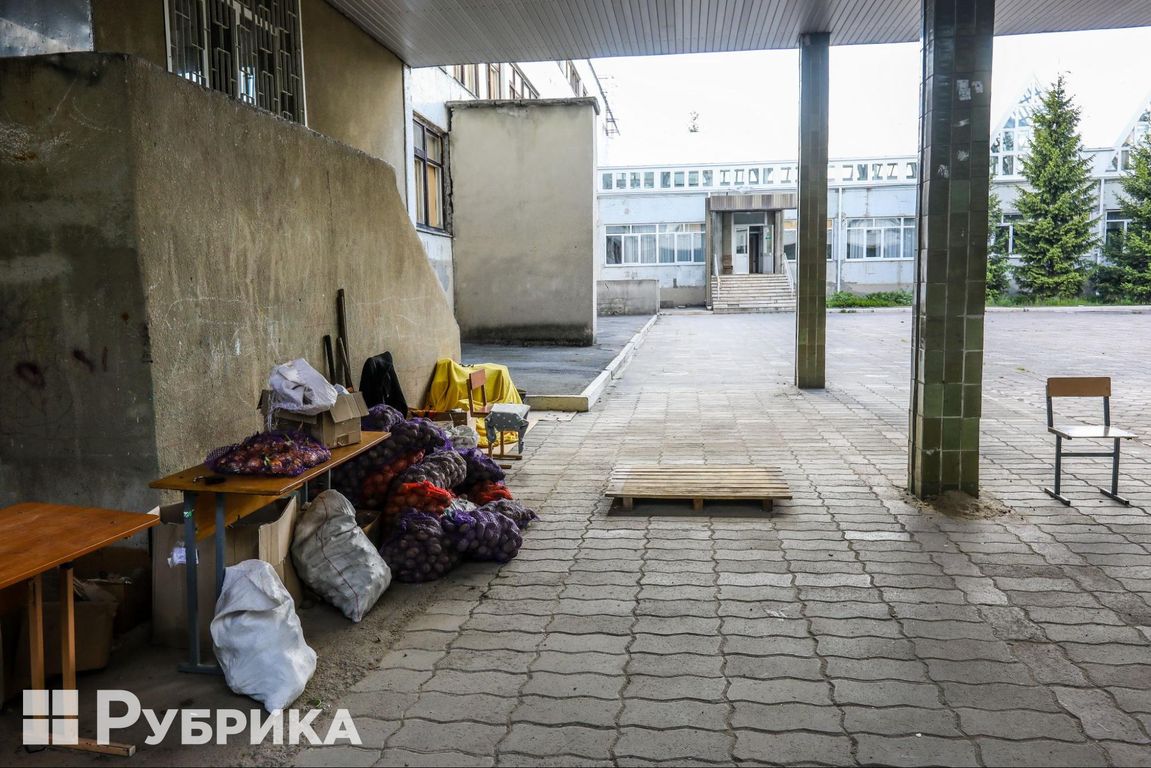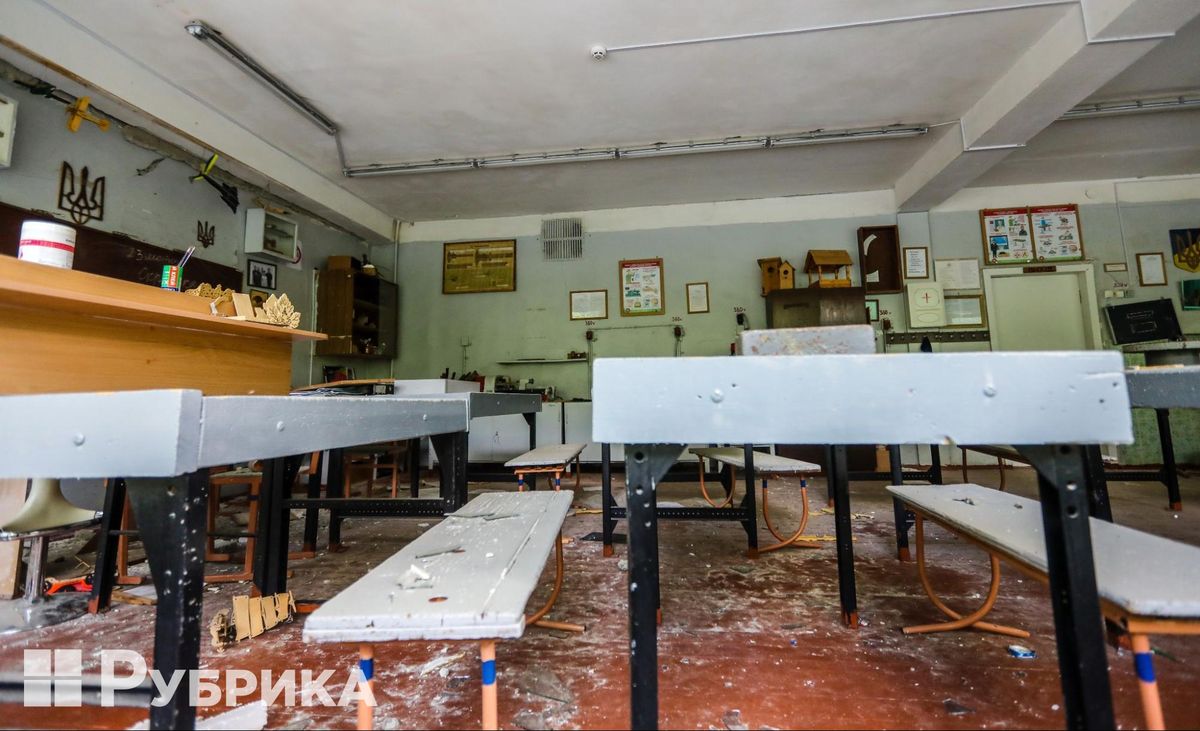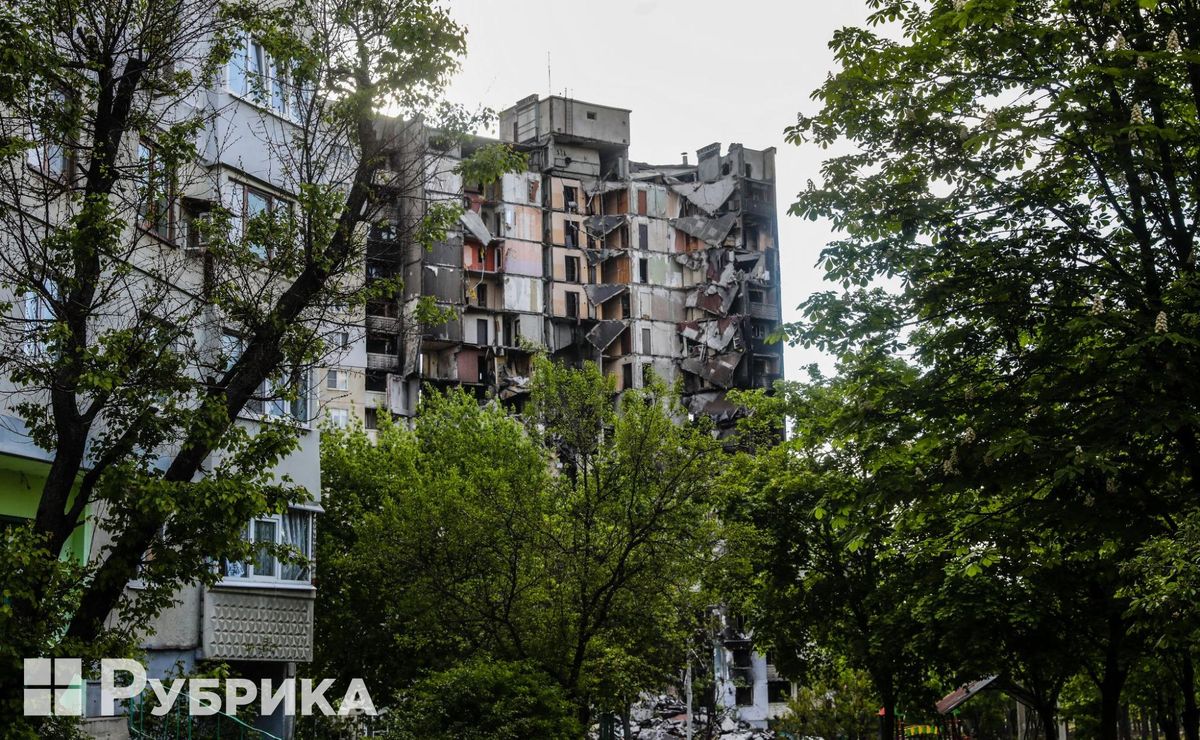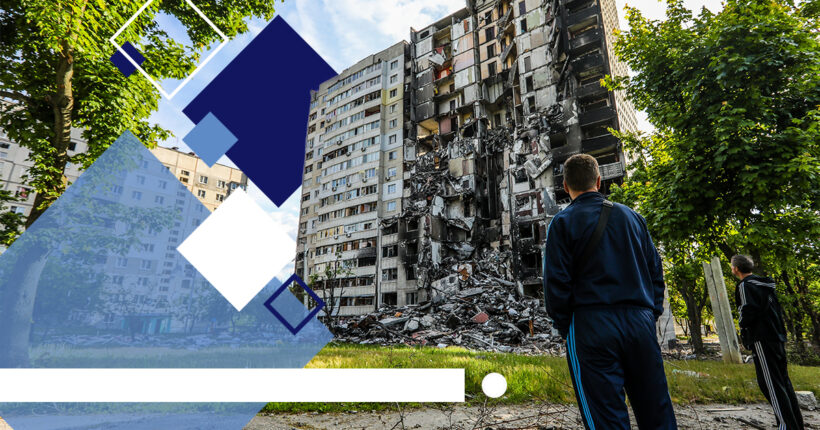
The broken glass is crunching underfoot—that's how Kharkiv sounds in the fourth month of the horrible war. This sound is on each interview audio recording brought from the city, with every conversation and every decent hue of a silent walk.
In Pivnichna Saltivka, the largest residential area on the city's outskirts, the sounds of russia's missile strikes and Ukrainian responses, especially weighty silence, join the crunch. The district, which once housed about four hundred thousand Kharkiv residents, is now almost empty and completely broken. After the targeted shelling, a significant part of the buildings has been in an emergency state. People who stay home sleep in basements, cook on the street, and charge phones from volunteers' power banks. They keep the phones, but there is almost no mobile service.
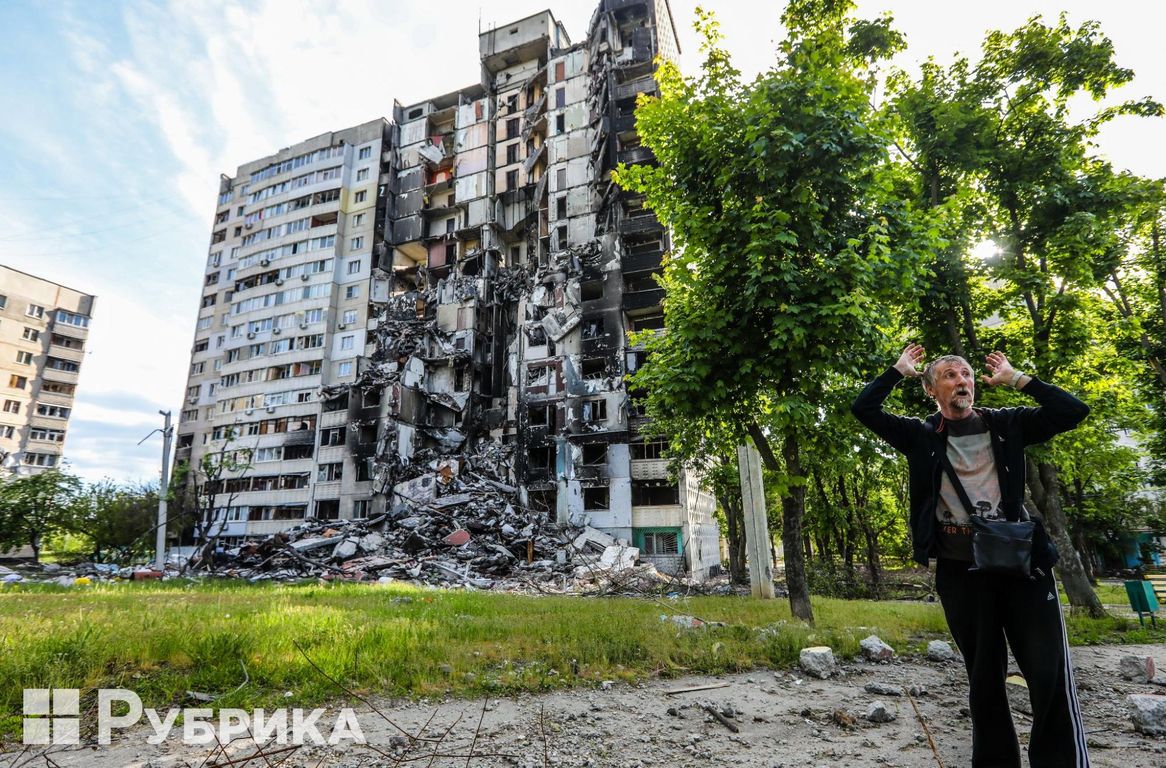
"Twenty dollars!"
Pivnichna Saltivka starts from the checkpoint. The military inspects documents and instructs on safety rules: don't walk on lawns—they may be mined; don't go behind garages—sappers work there. In case of a missile strike, fall and cover your head with your hands—strikes are frequent here.
Instead of concrete blocks or sandbags blocking part of the road at regular checkpoints, there are two broken buses. Without windows and, it seems, without other essential parts for cars. They display warnings in white and red about the shelling and the travel ban for civilians. At the time of our visit, this checkpoint is one of the closest to the front line.
On both sides of the road, there are residential buildings. Approaching them, we see maimed kiosks that look like abandoned broken toy houses. The deeper we go into the yard, the thicker the smell of smoke becomes. In some places, the stench of ammonia hits our noses—a combination of molten plastic in fires, the garbage that no one comes to take out for a long, and dead pigeons no one can get rid of.
Most of the walls are black with fire. Most of the windows are blown apart by explosive waves. When there are no sounds nearby, everything becomes like one big scene.
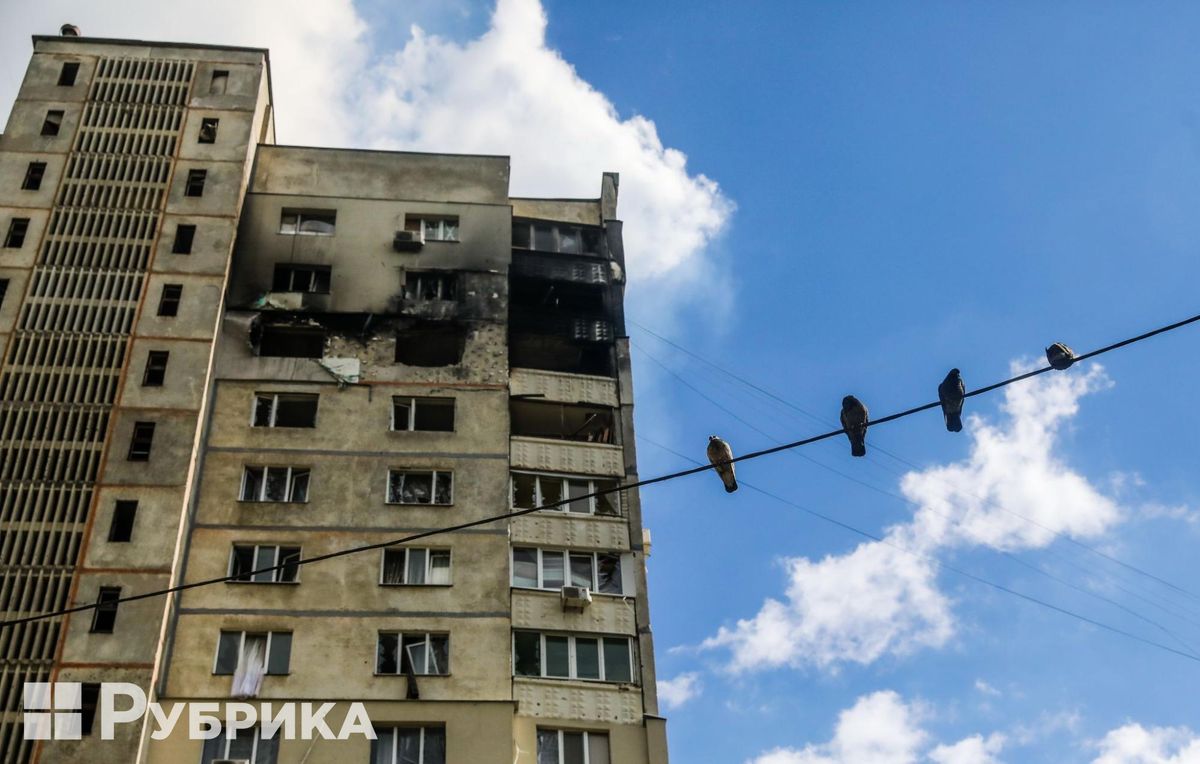
We still hear the sounds. Mostly it's the sound of explosions.
A man in his forties is bustling near one of the buildings. Worn-out clothes, shoes with holes, and gray skin, as if smog had settled on his face and hands. From the first day of russia's full-scale invasion, he didn't leave his home. When the windows of his apartment shattered after another explosion, he was inside. He says that God had mercy on him, so he remained alive. We can only see some cuts on the neck and arms.


"We have three people in the building. Here," the man points to the building on the right, "just one person. And here," he extends a hand even further in the same direction, "is nobody and no electricity, gas, water… nothing. After shelling knocks out windows and scatters window frames or wooden furniture, we collect them. It's our firewood. We light a fire here near the playground and cook. We have water, gas, and light in this 'kitchen,' everything!" says the man and begins to chuckle in the dead silence.
"And what is your name?"
"Vova."
"Can we take a picture of you, Vova?"
"Don't. Take a photo of the building. Not me."
When we leave a little, we notice two more men who, apparently, were watching our conversation with Vova. Seeing a camera aimed at them, one of them cheerfully exclaims: "Twenty dollars!" and is also filled with laughter.
Explosion. Even more caustic smoke begins to spread nearby.
"The day before yesterday, I saw GRADs so close for the first time…"
After another explosion, our guide asks what to do if one of the three of us is injured. The men explain it as briefly as possible. Get a turnstile. Tighten it above the wound very firmly, and quickly reach the point where you can catch the mobile service.
We move forward. Gradually we meet more and more cats until we find a woman named Natalia, surrounded by animals.
When we approach, they don't react to us at first. When we ask about the paws, Natalia still speaks in a measured, tired voice.
"I have different ones here. There are not all, not all… Everyone who ran away left cats, dogs, and parrots. There are about a hundred of them here. Volunteers bring food, but it's not enough. I give them a ten-kilogram bag of feed a day, 10–15 liters of water, not counting what I'm pouring here," the woman pauses, sighs and points to the empty water cans. "I need to go to bring some water but I have no strength."
Natalia's apartment here is relatively unchanged: the fire did not spread to it, and the projectile didn't hit it, but due to the explosive waves, the apartment is now without windows and doors. Natalia says that only she and the neighbor downstairs, from the eleventh floor, stayed at this building section. Both now live in the basement. As in the whole of Pivnichna Saltivka, there's no electricity or water supply.
Here, in the middle of tall ruined buildings, it's freezing despite the warm day; the sun rays don't get here. At the entrance to the basement, Natalia and her neighbor set up a kitchen for themselves and the animals. Natalia says that they go to bed in shoes and clothes at night, cover themselves with a few blankets, and even freeze in the basement.
"Is it terrifying, perhaps, when the shelling is more serious?"
"I don't know… There's no fear anymore; there's nothing," the woman exhales heavily, and silence descends for a while. "There are intense strikes here. When you hear something, fall immediately. It's like that here daily. The day before yesterday, I saw GRADs [multiple-rocket launching systems] so close for the first time. I fell and lay down, looking at them.
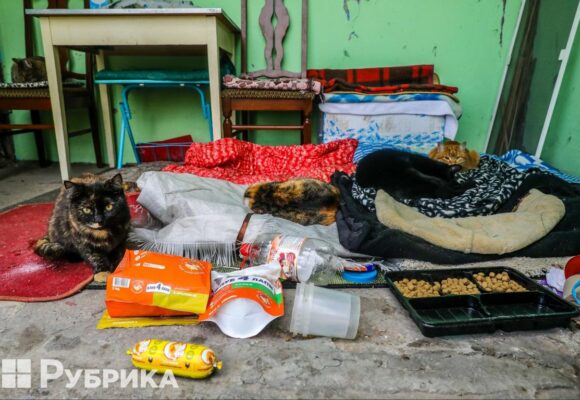
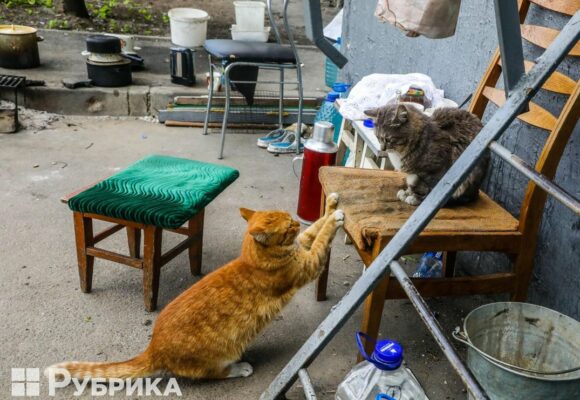
Meanwhile, we hear explosions again.
"It's from our side," says the woman, "it's definitely our military…"
"Sorry, I have a mess after the shelling"
In mid-May, the shelling of Kharkiv lost its usual intensity for several days. People began to return to their homes. There was hope for relative safety. But later, the strikes increased again. Although the Ukrainian Armed Forces drove russian troops away from the city, the shelling didn't stop.
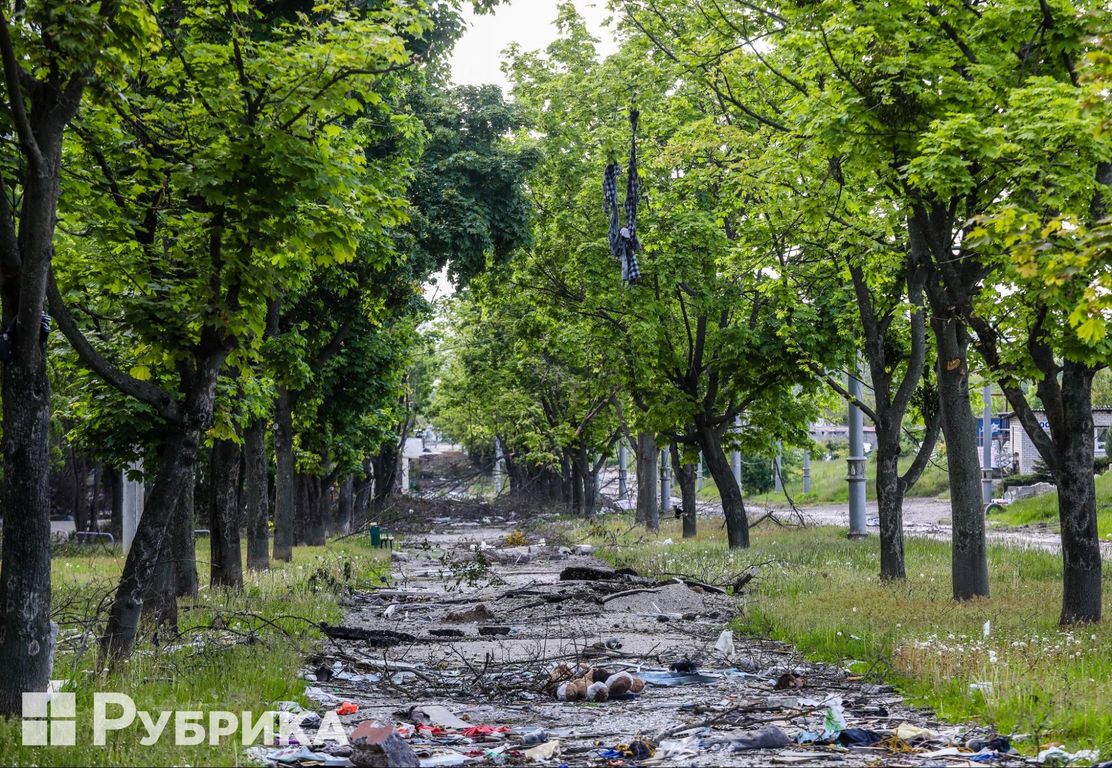
In Pivnichna Saltivka, we also meet people who have come to pick up things or their remains from their apartments. They are different from those who've been here since day one. People who left are still reacting to the explosions; instead of jackets, they are wearing T-shirts.

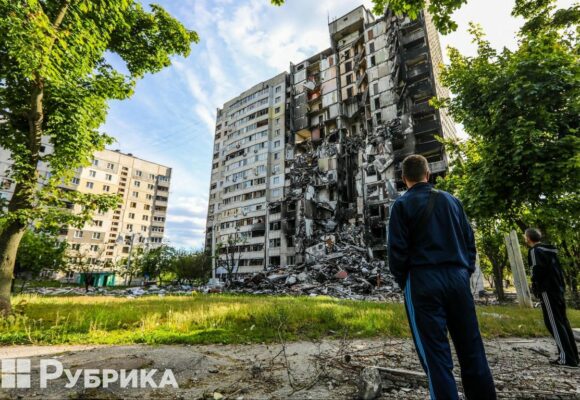
"I left on March 6. Then they [russians, ed.] were already shooting so hard that I could not just take it anymore. I jumped out of the apartment in the clothes I had on me and was sheltered by strangers. I came here to get at least some clothes because my husband and I don't even have anything to change to. The apartment is without windows, and everything is overturned. We agreed with some guy that they would shut the windows with plywood. Then we'll leave. It's impossible to live here," says the woman wiping tears. Then her husband calls her, she tells us to be careful here and leaves quickly.
Among those who've remained, we meet mainly older people—people who don't have anywhere to go or have decided to be at home until the last minute. Among others is Anatolii. The man is 78, and his children and grandchildren are now far away. In the past, he was a regimental commander. We meet thanks to his tiny dog, which runs up to us and begins to growl desperately.
"Is this your dog?"
"Mine! It has already been shown on American TV.
"Well, yes! Such a beautiful creature!
"I have canaries in the apartment and him."
"Canaries? Can I visit them?"
"Let's go!"
As we go up to the fourth floor, Anatolii says it has become much quieter. Although he still hears the explosions, now at least he can go outside. In the first days of the full-scale war, the man's building was left without heating, light, and windows. Even the aquarium in the man's apartment froze when the frosts became stronger in March.
We find ourselves in a room full of little colored birds when we get to the apartment. While we amazedly estimate how many of them are here, Anatolii says quietly:
"Sorry, I have a mess after the shelling"

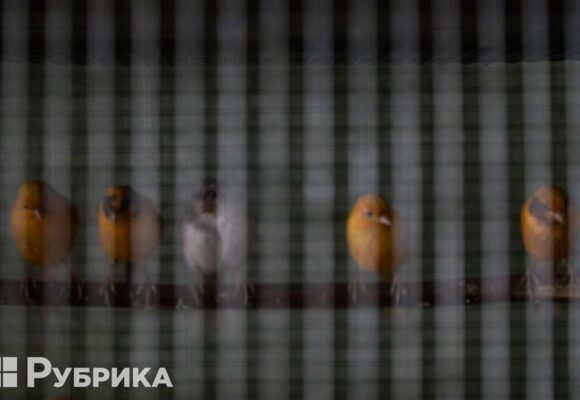
Instead of windows in the apartment, we see the film. Seeing strangers, the birds lament, slowly going into calm chirping. Next to the cages are bags of food and buckets of fresh grass.
"I don't know exactly how many canaries I have. Today I cleaned the cage, and one of them flew out. But two days ago, the chicks hatched. It means that life goes on! I cooked eggs for them today because the chicks need eggs. I pull the grass for them, and I love it! I've loved it since childhood," says the man and inhales a cigarette.

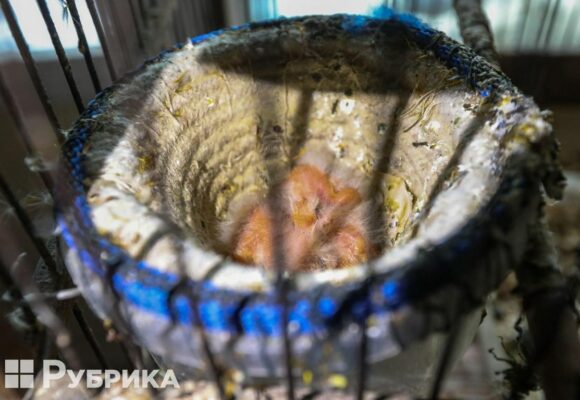
The man says volunteers brought the feed, but it is running out. Shops nearby are closed, public transport doesn't come here, so a pensioner cannot buy food for his animals on his own. He says he has money, but it has no use. The man himself receives food from volunteers, as well as everyone who stayed in Pivnichna Saltivka. Anatolii emphasizes he has enough of everything and only worries about birds.
"My windows flew out on the first or second day. The hardest part was when the temperature in the apartment became −20. I have a bowl here. I burned things like chairs in the kitchen to heat the water to give it to the birds and then lay under the blankets fully dressed. In my bathroom, I poured the water into the bath on purpose. It froze. The aquarium with fish froze. The water in the toilet also froze. I had a lot of fish and many plants, so many beautiful ones. Everything froze."
During the shelling, says Anatolii, he didn't hide. He lay down on the bed, took his dog Zlatik with him, and hoped everything would be fine. The dog is 14 years old and can hardly hear, so he slept peacefully to the sounds of explosions. The birds, he says, were not afraid.
"You ask, was it scary when they bombed? Am I not a 'hero of the Soviet Union?' Of course, it's scary, but I didn't go to the basement. My neighbors, while they were here, knew I was a colonel. If they saw the colonel running to the basement, they would've been more scared," the man laughs good-naturedly.
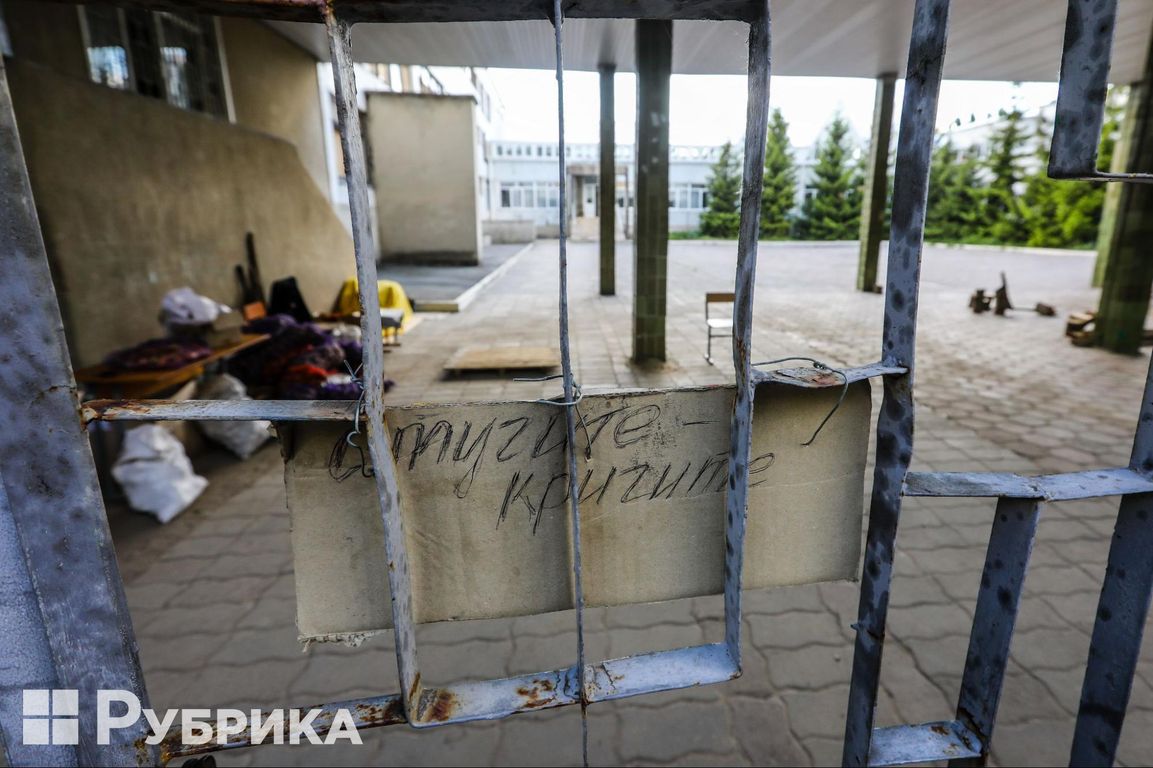
When we leave Anatolii, we don't meet anyone else. We find a shelled school with broken windows. Entire walls collapsed in some classrooms. On the playground, there's a shell crater and dead birds everywhere.
When we return to Kyiv, we bring the smell of smoke with us. It got into our things, bulletproof vests, and especially into the hair. In a few days, our photographer hands over the food for canaries to Anatolii. We learn that the electricity in the man's building has finally appeared, and we very much hope there will be promises for a normal life.
Photo by Mykola Tymchenko, Rubryka



